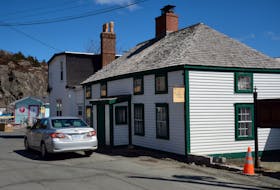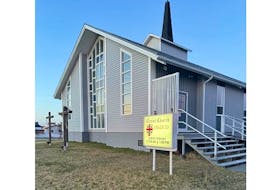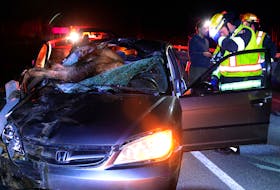
Come Nov. 1, a mandatory exit time will come into effect which will require the owners of establishments licensed to sell alcohol to ensure that patrons have vacated the premises within 60 minutes after the regulated closing time for alcohol sale.
In Newfoundland and Labrador, the sale of alcohol in a licensed establishment is prohibited after 2 a.m. Sunday to Thursday nights and not allowed after 3 a.m. on Friday and Saturday nights. Any alcoholic beverages must be consumed on the premises within 30 minutes after the legislated closing time.
Most bars are already down to the last few stragglers by 3 a.m. during the week and by 4 a.m. on the weekends, but this will give the bars more reason to enforce that practice.
“You have staff working all day and night in a fairly intense setting, so we generally try to do that anyway,” said Dave McHugh, owner of McHugh’s Bar in Corner Brook. “Now, it will make me instruct my staff to be a bit more diligent about it.
“We don’t want to get a fine, but it’s probably a good thing for everybody anyway.”
McHugh has seen the odd patron who second guesses that they have to leave. The same thing happens with people who believe they can smoke a cigarette outside on his bar’s deck, which they are not allowed to do either.
Chris Bowring, who runs Whelan’s Gate in Corner Brook, also thinks it’s a good idea to require bar hoppers to leave the premises within an hour of the bar itself closing down. He said there are not usually many people left hanging around come 4 a.m. anyway.
“Four o’clock is definitely plenty of time to be out of those places,” said Bowring. “If you want to keep going, that’s what houses are for.”
In fact, he’s a proponent of bars having to shut earlier than they do now.
“If they were open until 1 or 2 o’clock on the weekends and 12 or 1 o’clock during the week, it would make for a better day the next day for everybody,” he said.
Neither McHugh nor Bowring have been given formal notice by the Newfoundland and Labrador Liquor Corporation about the new regulations. The amendment to the liquor licensing regulations under the provincial Liquor Control Act was announced by the provincial government in a press release Tuesday.
Neither of the bar owners were also clear on exactly how the new regulation was to be effectively communicated to the patrons. Both thought signage, preferably something issued by the liquor corporation for establishments to display prominently, would be useful in convincing uncooperative patrons that this is now the law.
Greg Gill, the liquor corporation’s marketing and communications manager, said Wednesday that a memo is being prepared for mail-out to licensees by the end of this week and the press release issued was meant to serve notice to the general public. Gill said signage would not be required and it would be left to each licensee to decide if they deem it necessary.
“I’ll probably address it with a sign, even if I have to make it myself,” said McHugh. “We will probably be giving people a little earlier warning too. Ninety-five per cent of people are good about it anyway.”
Any violation of the new regulation could result in a reprimand or even the liquor licence suspended or cancelled. The penalty would likely be more severe for repeat offenders.
There is provision under the Liquor Control Act for liquor inspectors to have the authority to arrest offenders, at which time they would be subject to monetary penalties upon conviction.








